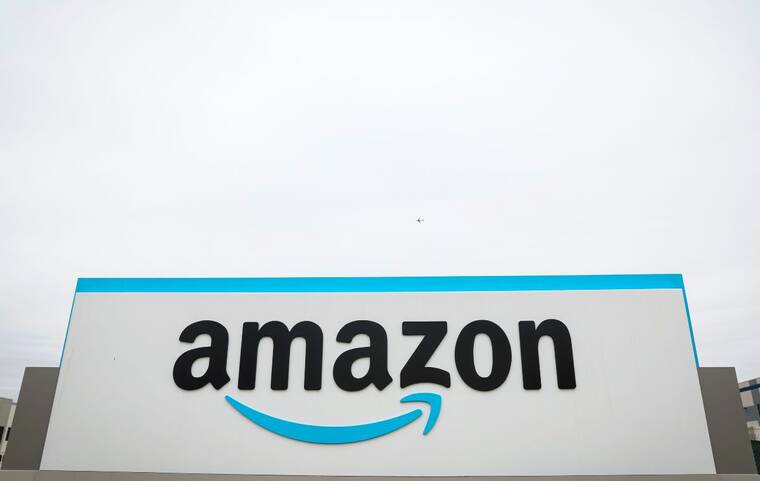Labor board bans mandatory anti-union meetings in Amazon ruling

REUTERS/BRENDAN MCDERMID/FILE PHOTO
The Amazon logo is displayed on a sign outside the company’s LDJ5 sortation center in the Staten Island borough of New York City, in April 2022. Amazon.com made unlawful promises and threats during mandatory meetings to discourage unionizing at a New York City warehouse, a U.S. labor board said today while banning employers from holding such meetings moving forward.
Amazon.com made unlawful promises and threats during mandatory meetings to discourage unionizing at a New York City warehouse, a U.S. labor board said today while banning employers from holding such meetings moving forward. The National Labor Relations Board said that so-called “captive audience meetings,” which have been legal for decades and are routine during union campaigns, illegally interfere with workers’ rights to freely choose whether or not to unionize.
Employers can lawfully hold meetings to discuss unionizing if they are voluntary, workers are given advance notice of subjects to be discussed, and no attendance records are kept, said the board, whose members are appointed by the president. The board currently has a majority of Democratic appointees. The NLRB said that Amazon managers solicited grievances and made implied promises to remedy them if workers rejected the union during mandatory meetings at the Staten Island warehouse known as JFK8 ahead of a 2022 union election. At other meetings, managers illegally threatened to withhold raises and benefits if the warehouse unionized, according to the decision. Amazon also posts on an internet message board and threatened to discipline a JFK8 employee if she re-posted them, the board found. Workers at the warehouse ultimately voted to join the Amazon Labor Union, making it the first and so far only Amazon facility to unionize.
Amazon and the union did not immediately respond to requests for comment. The board ordered Amazon to post a notice of the violations at the Staten Island warehouse. Amazon can appeal the decision to a federal appeals court, which would add to a series of court battles between the e-commerce giant and the labor board. Amazon has filed two lawsuits claiming the NLRB’s structure is unconstitutional, joining a number of other companies including Elon Musk’s SpaceX. Amazon’s cases seek to block labor board proceedings against the company, including claims that it has illegally refused to bargain with the union at JFK8.
The NLRB’s ban on captive audience meetings is likely to face legal challenges by employers, including claims that the ban violates businesses’ free-speech rights.
The decision could also be overturned by the board when it gains a Republican majority, as the agency often reverses itself after changes in leadership. President-elect Donald Trump could have a Republican-led board in place as soon as next year. At least 10 U.S. states including New York, California, and most recently Alaska have banned captive audience meetings or prohibited employers from disciplining workers who do not attend them.
The NLRB said its decision would only be applied moving forward and not to pending cases.
Don't miss out on what's happening!
Stay in touch with breaking news, as it happens, conveniently in your email inbox. It's FREE!




